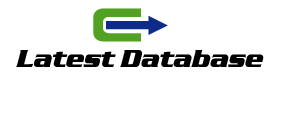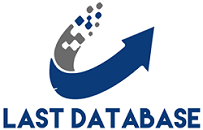Understanding Lead Generation for B2C
Lead generation for B2C involves identifying and attracting individual consumers who are interested in your products or services. The primary goal is to convert these leads into paying customers by engaging them with compelling offers, personalized communication, and seamless buying experiences.
Key Strategies for B2C Lead Generation
Content Marketing
Social Media Marketing
Email Marketing
SEO and Paid Search
Influencer Marketing
Referral Programs
Contests and Giveaways
Retargeting
1. Content Marketing
Content marketing is essential for attracting and engaging potential customers by providing valuable and relevant information. It helps build brand awareness, establish authority, and nurture leads through the buying journey.
Best Practices:
Blog Posts: Create engaging blog posts that address common consumer questions and provide solutions. Focus on topics that resonate with your target audience.
Video Content: Produce high-quality videos, including tutorials, product demos, and customer testimonials, to visually captivate your audience.
Infographics: Use infographics to present complex Phone Number Listsinformation in an easily digestible format.
User-Generated Content: Encourage customers to share their experiences with your products through reviews, photos, and videos.
2. Social Media Marketing
Social media platforms are powerful tools for B2C lead generation, offering vast opportunities to reach and engage with potential customers.
Best Practices:
Platform Selection: Choose the right social media platforms based on your target audience demographics. Popular platforms for B2C include Facebook, Instagram, TikTok, and Pinterest.
Engaging Content: Share a mix of content, including posts, stories, reels, and live videos, to keep your audience engaged.
Social Media Ads: Use targeted social media ads to reach specific demographics and drive traffic to your lead capture pages.
Influencer Partnerships: Collaborate with influencers to reach a wider audience and build trust through authentic endorsements.
3. Email Marketing
Email marketing is a highly effective channel for nurturing leads and converting them into customers. Personalized and targeted email campaigns can significantly boost engagement and sales.
Best Practices:
Segmentation: Segment your email list based on consumer behavior, preferences, and demographics to send more relevant messages.
Personalization: Personalize your emails with the recipient’s name and tailored product recommendations.
Automated Campaigns: Set up automated email sequences, such as welcome series, cart abandonment reminders, and post-purchase follow-ups.
Compelling CTAs: Include clear and compelling calls-to-action (CTAs) that encourage recipients to take the next step, such as making a purchase or signing up for a newsletter.
4. SEO and Paid Search
Search engine optimization (SEO) and paid search (PPC) are critical for driving organic and paid traffic to your website, capturing leads who are actively searching for products or services like yours.
Best Practices:
Keyword Research: Identify and target high-intent keywords that your target audience is searching for.
On-Page SEO: Optimize your website’s content, meta tags, and headers to improve search engine rankings.
Local SEO: Optimize for local search terms if your business serves a specific geographic area.
Google Ads: Run PPC campaigns on Google Ads targeting relevant keywords to drive traffic to your landing pages.
5. Influencer Marketing
Influencer marketing leverages the reach and credibility of influencers to promote your products and generate leads. It is particularly effective for B2C brands looking to build trust and authenticity.

Best Practices:
Identify Relevant Influencers: Choose influencers who align with your brand values and have a following that matches your target audience.
Authentic Collaborations: Encourage influencers to create authentic content that highlights the benefits of your products.
Track Performance: Monitor the performance of influencer campaigns using tracking links and engagement metrics to measure ROI.
6. Referral Programs
Referral programs incentivize your existing customers to refer new leads to your business. This can be a cost-effective way to generate high-quality leads through word-of-mouth marketing.
Best Practices:
Attractive Incentives: Offer appealing incentives, such as discounts, rewards, or exclusive offers, for successful referrals.
Easy Participation: Make it simple for customers to participate in the referral program with clear instructions and user-friendly tools.
Tracking and Rewards: Implement a system to track referrals and ensure timely delivery of rewards.
7. Contests and Giveaways
Contests and giveaways are effective for quickly generating leads and increasing brand awareness. By offering attractive prizes, you can encourage participation and engagement from your target audience.
Best Practices:
Relevant Prizes: Choose prizes that are relevant and appealing to your target audience.
Clear Rules: Clearly outline the rules and entry requirements to avoid confusion.
Promotion: Promote the contest or giveaway through social media, email marketing, and your website.
Lead Capture: Use entry forms to capture participant information for future marketing efforts.
8. Retargeting
Retargeting involves displaying ads to users who have previously visited your website or interacted with your brand. This helps keep your products top-of-mind and encourages return visits and conversions.
Best Practices:
Audience Segmentation: Segment your retargeting audience based on behavior, such as page views or cart abandonment.
Compelling Ads: Create visually appealing and relevant ads that remind users of the products they viewed or left in their cart.
Frequency Cap: Set a frequency cap to avoid overexposing your audience to retargeting ads and causing ad fatigue.
Conclusion
Effective lead generation for B2C companies requires a comprehensive and multi-channel approach. By leveraging content marketing, social media, email marketing, SEO, influencer marketing, referral programs, contests, and retargeting, B2C businesses can attract, engage, and convert potential customers. Implementing these strategies and following best practices will help ensure a steady stream of high-quality leads, ultimately driving growth and success in the competitive B2C market. Regularly analyzing performance and optimizing your efforts will further enhance the effectiveness of your lead generation strategies.


